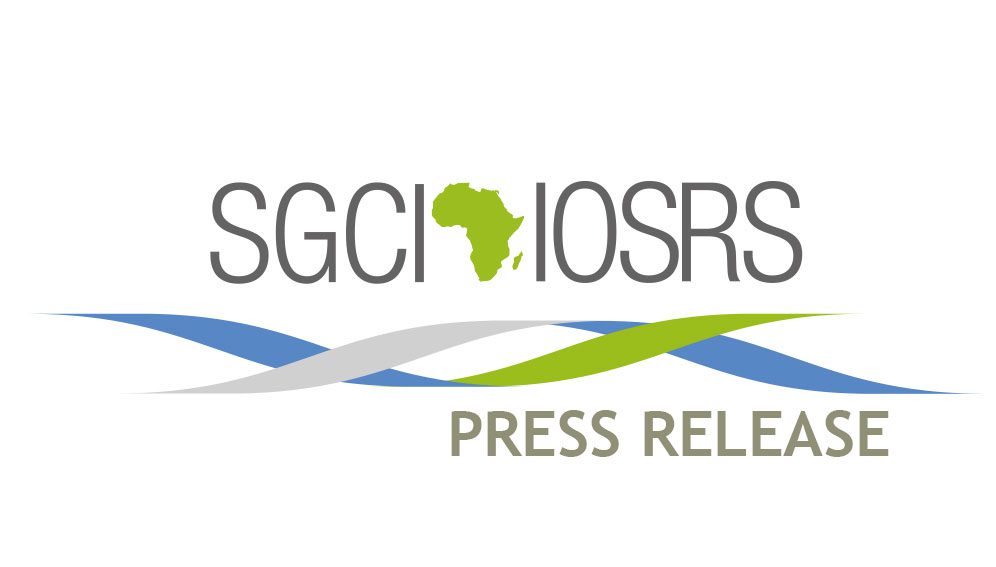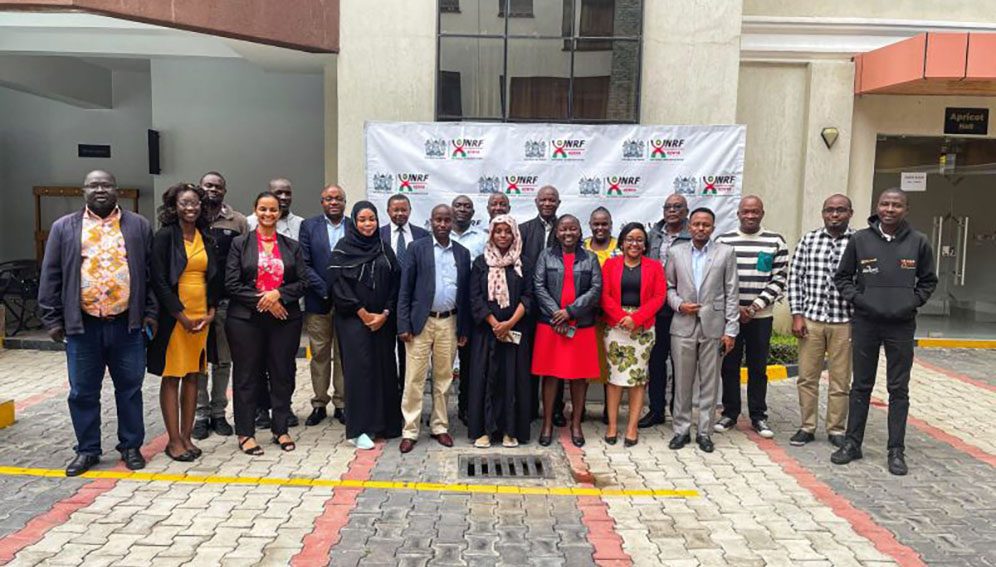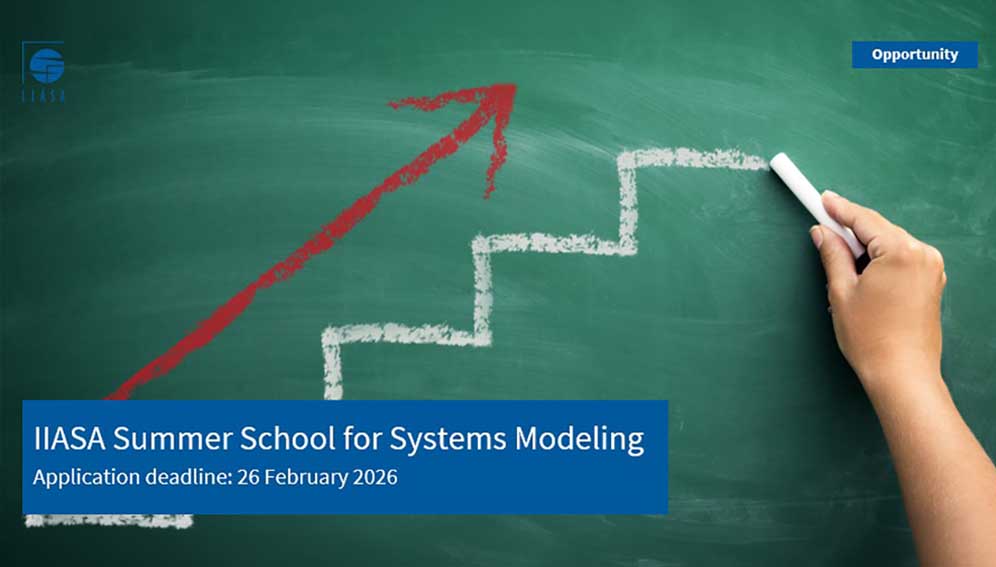SGCI News
In this Ask the expert article, Nicholas Ozor, executive director of the African Technology Policy Studies Network (ATPS), shares highlights of the Strengthening the National Research and Innovation Funding Agencies…
In this Ask the expert article, Nicholas Ozor, executive director of the African Technology Policy Studies Network (ATPS), shares highlights of the Strengthening the National Research and Innovation Funding Agencies in West Africa (SRIFA) project under the Science Granting Councils Initiative (SGCI).
Strengthening the National Research and Innovation Funding Agencies in West Africa (SRIFA)
ATPS, in partnership with the African University of Science and Technology (AUST), led the three-year SRIFA project to strengthen research and innovation funding agencies in six West African countries: Burkina Faso, Côte d’Ivoire, Ghana, Nigeria, Senegal, and Sierra Leone.
The project provided training and technical support, recognising that West Africa lags behind other regions in the roles expected of Science Granting Councils (SGCs) – funding research, assuring quality, shaping policy, and building capacity.
Where agencies existed, SRIFA worked to strengthen them. Where they did not, it laid the groundwork for new ones. The results over the last three years mark a turning point for the region.
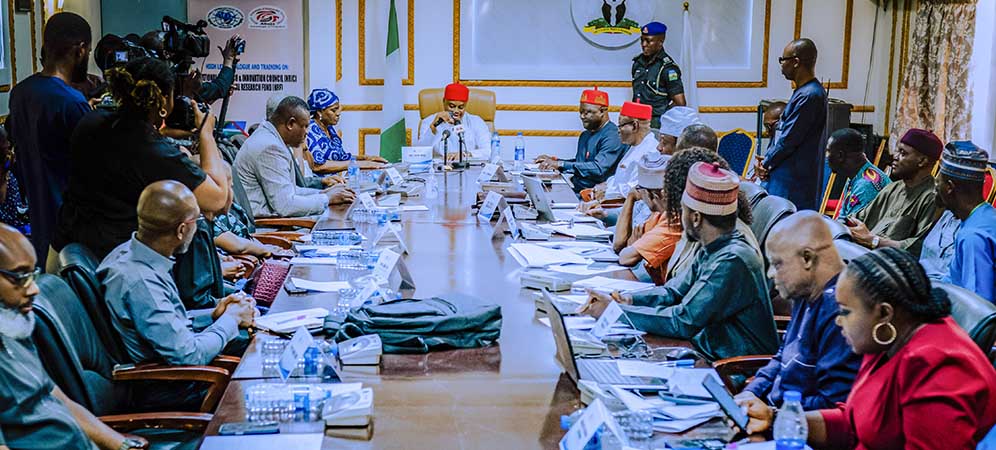
Success stories across West Africa
Sierra Leone
A new Council, the National Science, Technology, and Innovation Council (NSTIC), was established alongside the country’s first STI Policy.
Inaugurated in 2023, NSTIC has a statutory mandate to fund research and innovation. SRIFA supported the new Council with tailored training and a benchmarking visit to Ghana’s Ministry of Environment, Science, Technology, and Innovation (MESTI).
The exchange provided insights on governance, digital systems, and resource mobilisation, leading to a planned Memorandum of Understanding between both institutions.
Ghana
The Ghana National Research Fund (GNRF) was created under Act 1056, while MESTI continues to act as an intermediary. SRIFA strengthened its capacity through workshops on funding management, ethics, and gender inclusion.
A learning visit to Tanzania’s COSTECH exposed MESTI to advanced digital research management systems and innovation hubs, inspiring concrete plans for digital adoption, industry partnerships, and commercialisation strategies.
Nigeria
A significant political commitment has been secured for the establishment of a National Research Foundation (NRIF) and a National Research and Innovation Council (NRIC).
The President, Bola Ahmed Tinubu, announced his intention to establish an NRIF and an NRIC during a high-level policy dialogue convened by the ATPS and AUST in Abuja on 5 November 2024.
The President committed to adopting the existing Bill that will establish an NRIF and an NRIC that already passed through a third reading at the National Assembly into an executive bill for easy passage into law.
The event brought together over 60 key stakeholders, including parliamentarians, government officials, private sector leaders, research agencies, and academia, to advocate for the establishment of an NRIF and NRIC in Nigeria.
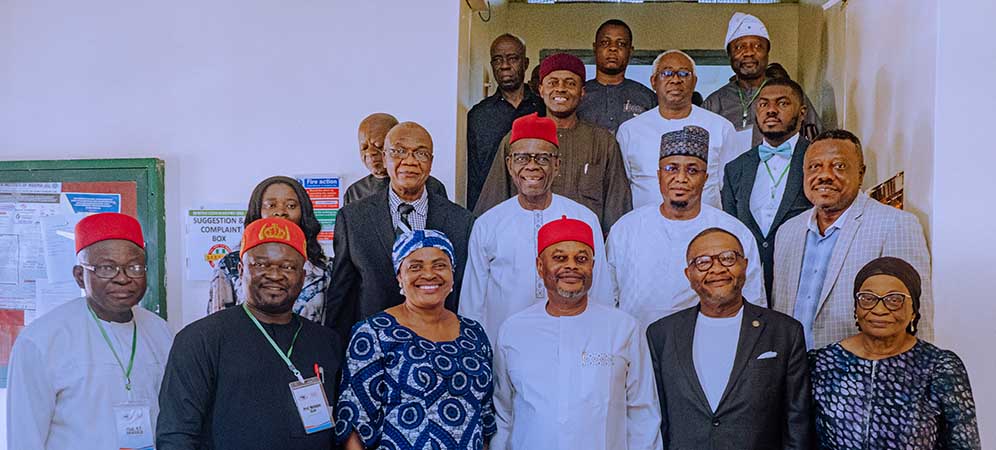
Currently, an Inter-ministerial Committee on Research and Innovation (IMC-RI) was inaugurated in April 2025 at the State House and is being chaired by the Vice President and comprises 16 federal ministries in Nigeria.
The primary mandate of the IMC-RI is to draft the executive bill harmonising all other existing bills for the establishment of NRIF and NRIC in Nigeria for presentation to the National Assembly by the President.
The SRIFA project successfully built consensus among stakeholders on critical implementation strategies, including securing five per cent of VAT revenue for sustainable funding, integrating various innovation agencies under the proposed council, and ensuring cross-sectoral collaboration through a quadruple helix governance model involving industry, government, academia, and civil society.
The policy dialogue was followed by a two-day training workshop targeting the quadruple helix on themes selected for Nigeria after a needs assessment was conducted, including approaches to research and innovation funding, gender equality, diversity and inclusion, research grant management systems, financial management, and online grant management systems, among other topics.
Burkina Faso
SRIFA strengthened the National Fund for Research and Innovation for Development (FONRID) with tailored training and a benchmarking visit to Ethiopia. Lessons on funding strategies, digital management, and participatory approaches inspired reforms to include curiosity-driven research and collaborations with Ethiopian institutions.
Côte d’Ivoire
Targeted training focused on commercialisation, partnerships, funding mobilisation, quality assurance, and online grant management. A benchmarking visit to COSTECH exposed FONSTI to new models of funding and ICT-driven systems, fostering knowledge exchange and paving the way for collaboration.
Senegal
The Ministry of Higher Education, Research and Innovation (MESRI) benefited from training in fundraising, grant management, partnerships, and gender-responsive data. A benchmarking visit to COSTECH provided best practices in grant systems, innovation support, and digital platforms, inspiring recommendations for strengthening Senegal’s research and innovation ecosystem.
Conclusion
The SRIFA project has demonstrated a significant impact on institutional capacity building across the participating West African Councils through systematic interventions targeting both existing and emerging science-granting councils. Most importantly, the project has achieved success in establishing new science granting councils in certain countries and has established institutional mechanisms for establishing the councils in other countries.
The project’s multi-faceted approach, encompassing targeted training and technical support such as benchmarking visits and high-level policy advocacy, has yielded measurable outcomes, including the establishment of Sierra Leone’s NSTIC, enhanced operational frameworks for existing councils in Burkina Faso, Côte d’Ivoire, and Senegal, and concrete policy momentum toward council establishment in Ghana and Nigeria.
The integration of digital transformation strategies, gender-responsive funding mechanisms, and cross-institutional knowledge transfer has strengthened the technical and administrative capabilities of participating agencies while promoting sustainable regional collaboration networks.
The project’s success in securing political commitment at the highest levels, particularly Nigeria’s presidential endorsement and the formation of an IMC-RI, demonstrates the effectiveness of evidence-based advocacy in catalysing institutional reforms.
These achievements position the six participating countries with enhanced research governance frameworks, improved funding mobilisation capacities, and strengthened regional cooperation mechanisms, which will significantly advance West Africa’s councils and the research and innovation ecosystem’s sustainability and competitiveness.
For more information on the SRIFA project, please contact the executive director, African Technology Policy Studies Network (ATPS), Nairobi, Kenya, by email at:executivedirector@atpsnet.org or visit the project website at: https://atpsnet.org/sgci-west-africa/
Please check out the stories and let us know what you think. We would love to hear from you!
Let’s continue the conversation on our social media
Related News
Science Granting Councils Initiative announce support to Africa’s STI Policy Agenda at African Union Meetings
Press Release Addis Ababa, Ethiopia | February 12, 2026 — Ahead of the Annual Summit of Heads of State at the African Union Headquarters in Addis Ababa this February, Canada’s International Development Research Centre (IDRC), the Government of Norway, and the United Kingdom’s Foreign, Commonwealth…
Kenya’s research fund launches data security training
The National Research Fund (NRF) Kenya has launched a research data security training workshop, highlighting its commitment to strengthening the quality, integrity, and impact of publicly funded research across the country. The workshop convened experts from universities, Ministries, Departments, and Agencies (MDAs), and research institutions…
ILASA summer school for systems modeling 2026
Master’s students, PhD candidates, and early-career researchers with a focus on sustainability and quantitative methods are invited to apply for the IIASA Summer School for Systems Modeling, taking place in Laxenburg, Austria, from 29 June – 10 July 2026. The two-week in-person programme offers intensive,…
SGCI funded projects
Rwanda’s integrated approach to sustainable agriculture and nutrition
Project Titles & Institution Areas of Research Number of Projects being funded Project Duration Grant Amount In-Kind Distribution Council Collaboration with other councils

